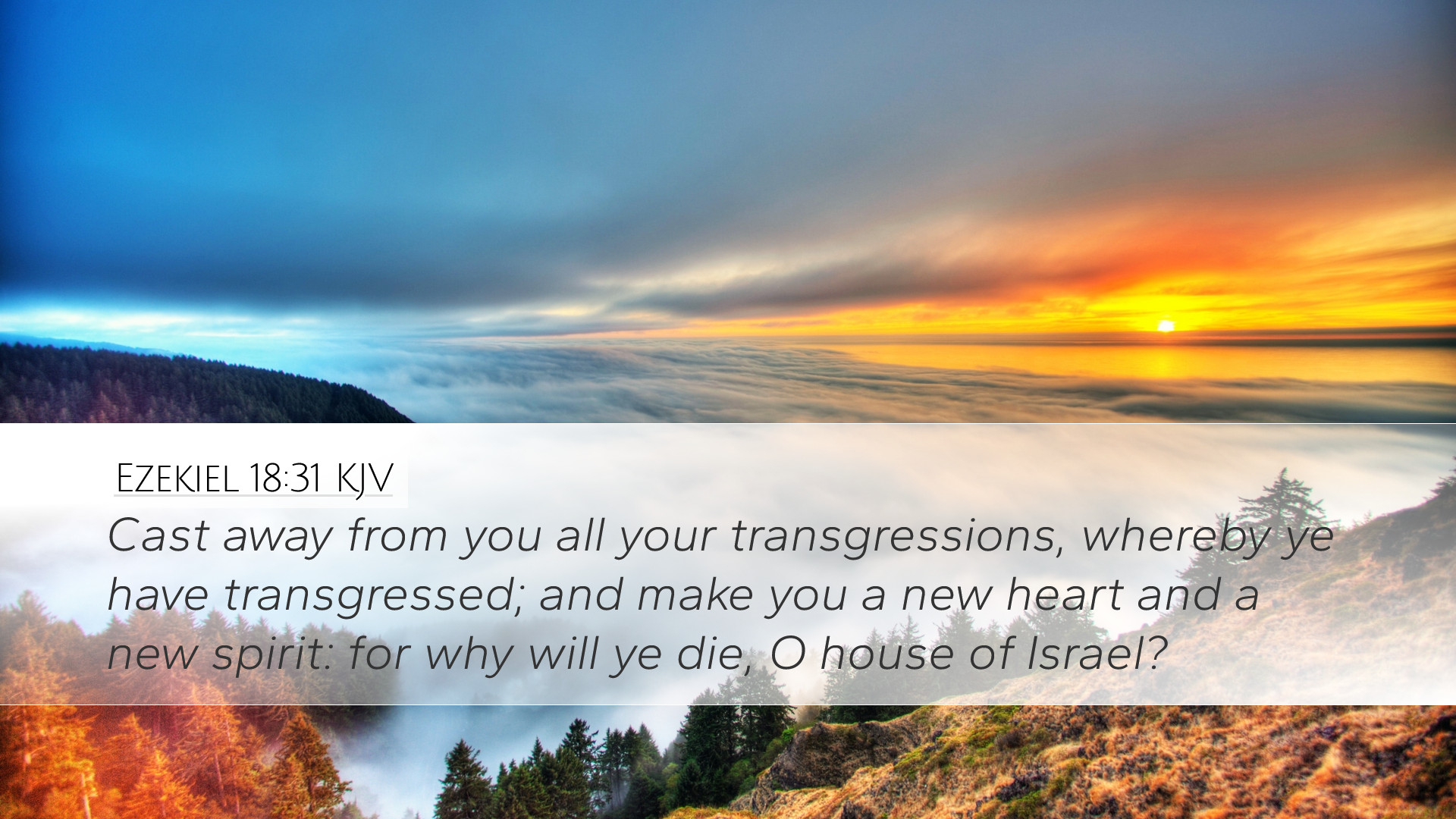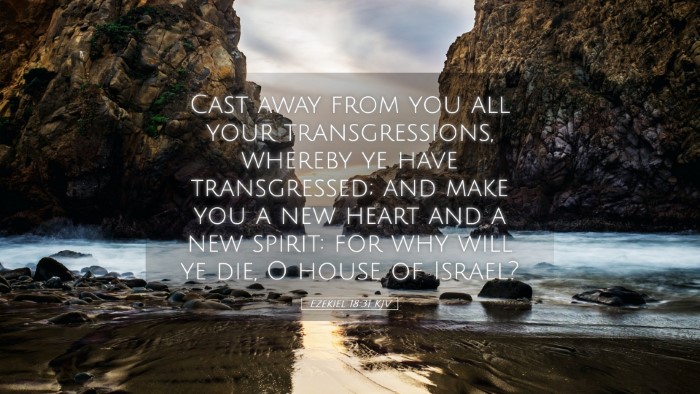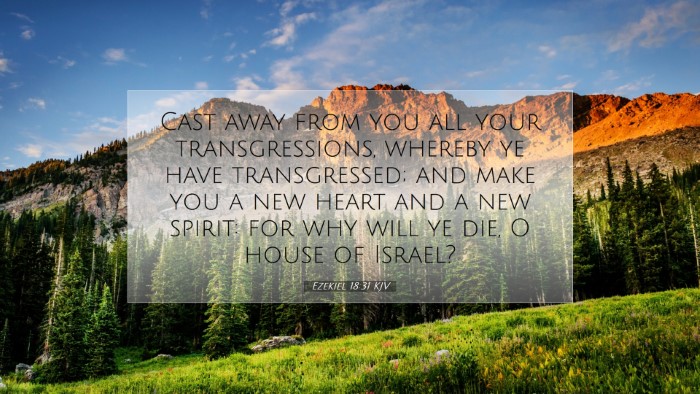Ezekiel 18:31 - Commentary and Insights
Verse Reference: Ezekiel 18:31
"Cast away from you all your transgressions, whereby ye have transgressed; and make you a new heart and a new spirit: for why will ye die, O house of Israel?"
Overview
The context of Ezekiel 18 is pivotal for understanding God's justice, mercy, and call to repentance. This verse encapsulates a divine invitation to transformation and renewal, emphasizing God's desire for the restoration of His people.
Commentary Insights
Matthew Henry's Commentary
Matthew Henry highlights the verse as a summons for the people of Israel to forsake their sinful ways. He notes that God's call to "cast away" transgressions emphasizes the necessity of a proactive decision to abandon old, sinful habits. Henry remarks:
"The notion of casting away includes the idea of both confession and abandonment of sin. It is not merely feeling sorry for sin but taking decisive action to turn from it."
Henry further explains that the "new heart" and "new spirit" are symbols of regeneration, speaking to the profound internal change that God desires in His people. This transformation is not achievable by human effort alone but is a work of divine grace.
Albert Barnes' Notes on the Bible
Albert Barnes emphasizes the personal responsibility articulated in the verse. He asserts that God requires individuals to be active participants in their reconciliation with Him. Barnes states:
"There can be no repentance without a recognition of wrongdoing, and no forgiveness without the heart's earnest desire to be renewed and changed."
Barnes interprets the "new heart" and "new spirit" as pertaining to the inner man, highlighting that true repentance leads to a complete transformation of one's desires and motivations. He posits that without this transformative experience, one remains stuck in a cycle of sin and death.
Adam Clarke's Commentary
Adam Clarke offers a thorough analysis of the implications of this verse, linking it to the overall theme of restoration found throughout the prophetic texts. He observes:
"This verse is a manifest call to repentance that invites the people to recognize that their future does not have to be defined by their past sins."
Clarke also underscores the seriousness of God's question, "for why will ye die?" indicating God’s sorrow over the inevitable consequences of sinful choices. He points out that God's demeanor is one of longing for relationship rather than desire for judgment.
Theological Reflections
- Divine Initiative and Human Response: The verse highlights the interaction between God's grace and human agency. While God offers forgiveness and a new beginning, it requires individuals to respond appropriately by turning away from sin.
- Transformation: A central theme in this text is the transformation of the heart. Both Old and New Testaments speak to this need for change, reinforcing the idea that true faith results in a new identity and lifestyle.
- Hope and Restoration: Despite the impending judgment that Israel faced, there is hope offered in this passage. God's desire is for His people to choose life—a major theme that resonates in both the prophetic and transformative nature of the Gospel.
Practical Applications
- Call to Repentance: Pastors and theologians can emphasize the importance of genuine repentance in the life of believers and the necessity of acknowledging sin publicly and privately.
- Encouragement of Transformation: Ministers can provide counsel on how to cultivate a "new heart" through prayer, study of Scripture, and the work of the Holy Spirit.
- Understanding of God's Mercy: Believers should be encouraged that while their past may be marred by sin, God's invitation to a new identity remains open to all who seek Him.
Conclusion
Ezekiel 18:31 serves as a poignant reminder of the grace and mercy of God towards His people. By calling them to cast away their sins and embrace a new heart and spirit, God underscores the transformative power of repentance. This verse remains as relevant today as it was in Ezekiel's time, inviting readers to reflect on their own spiritual journeys and the calling to live in accordance with God's righteousness.


